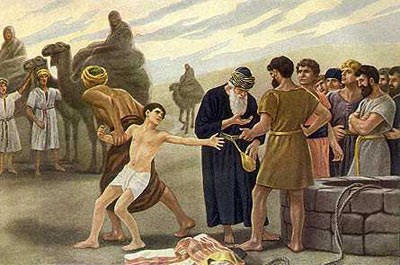 Obsession. I think that in many ways this describes the day in which we live. People become obsessed with an idea, interest, desire, or emotion and soon it dominates social media and the news as it consumes everyone’s attention. Everyone reading this post likely knows the nature of the current obsession.
Obsession. I think that in many ways this describes the day in which we live. People become obsessed with an idea, interest, desire, or emotion and soon it dominates social media and the news as it consumes everyone’s attention. Everyone reading this post likely knows the nature of the current obsession.
I admit that the sight of NFL players disrespecting our flag and nation greatly distresses me; I do not like it. But I also see a greater danger in the ridiculous proportions to which this controversy has grown.
People all around us are hurting and suffering; life is not easy.
It’s taking our attention away from what really matters. People all around us are hurting and suffering; life is not easy. Current day obsessions from whatever the source do not help anyone; they only further divide already bitter and angry people.
The Lord never promises us that everything will be fair or just in this life; however, He promises us something much, much, much better than that. . . .
Hope
Hope in Jesus. This is where our focus belongs. I was drawn to Romans 8:18-25 this morning. If anyone, apart from Jesus that is, had reason to complain about life being unfair, it was the Apostle Paul; he suffered greatly for the cause of the Gospel. Notice, however, his perspective in the midst of his great affliction, “For I consider that the sufferings of this present time are not worth comparing with the glory that is to be revealed in us’ (Rom. 8:18).
Wow! It was hope of a better day that kept Paul looking upward in the midst of his tribulation-filled life.
Paul said that it’s not only creation that currently groans awaiting a better day, but we also groan in our hope of Jesus’ appearing, “And not only the creation, but we ourselves who have the firstfruits of the Spirit, groan inwardly as we wait eagerly for adoption as sons, the redemption of our bodies” (8:23). Paul endured the bitter unfairness of life because he knew a better day was coming, one in which his adoption in God’s family would be made wonderfully complete and he would possess an immortal body that would forever enjoy the delights of eternity.
Sadly, so much focus rests on this life, even in most churches. Notice, however, Paul’s words in verse 24, “For in this hope we were saved. . . .” Hope in Jesus’ return for us is a key part of the Gospel; it’s the future tense of the Gospel. It’s the substance of our hope that both sustains us in this life and points us to a glorious future.
There was a time in my life when amidst great suffering I foolishly lost sight of my hope and became angry with God because of the unjust treatment I felt I had received.
Now, however, I recognize God’s loving hand in all I endured as well as my extreme foolishness for doubting His unfailing love for me. It was my hope in the Lord’s sure promises of a better day, along with His direct deliverance and healing, that eventually changed my perspective.
Paradise
Jesus promises us something infinitely better than a fair or just or even a comfortable life. He has graciously given us eternal life and someday, when He returns, He will take us home to be with Him forever and ever. This will be glorious beyond anything we can now imagine and will more than make up for the suffering of this life.
Yes, there is great joy in walking with Jesus in this life as He comforts us in sorrow, calms our fears, heals our wounds, strengthens us to meet the challenges of the day, and gives us peace in the midst of storms. An even greater joy, however, awaits us at Jesus’ return as we will experience His presence more fully and wonderfully than ever before. What we experience now in our walk with Him is simply a foretaste of what is coming.
Anger and bitter dissatisfaction with life crosses all divides, which is why we need a hope that does the same.
It’s not just NFL players; I see frustration, anger, bitter dissatisfaction with life, and hopelessness everywhere I look (often it's on Facebook or Twitter). It crosses all divides, which is why we need a hope that does the same. The Lord’s invitation of life is open to all.
Paradise is coming for all who know Jesus as their Savior; but this never-ending time of fullness and satisfaction will never happen this side of eternity no matter how hard anyone tries to make it happen. It's simply impossible; it cannot happen.
If you have never put your faith in Him, please do so before it is too late. Apart from Christ, any hope you have in this life or for the next will surely vanish like a vapor.
Life on earth ends, but Jesus offers life both now and forever. He offers hope in the midst of despair and deliverance from the wrath that is to come.
Do you know Jesus as your Savior? Is your trust in Him alone and nothing else for the forgiveness of your sins and eternal life?



 Irma Jean Wessels was a friend of my mom while I was growing up in Rockford, Illinois. I had not thought of her for many years until last Sunday when our pastor read Luke 18:28-30 as a part of his sermon. There, in response to Peter pointing out his sacrifice in following the Savior, Jesus responded with these words, “Truly, I say to you, there is no one who has left house or wife or brothers or parents or children, for the sake of the kingdom of God, who will not receive many times more in this time, and in the age to come eternal life.”
Irma Jean Wessels was a friend of my mom while I was growing up in Rockford, Illinois. I had not thought of her for many years until last Sunday when our pastor read Luke 18:28-30 as a part of his sermon. There, in response to Peter pointing out his sacrifice in following the Savior, Jesus responded with these words, “Truly, I say to you, there is no one who has left house or wife or brothers or parents or children, for the sake of the kingdom of God, who will not receive many times more in this time, and in the age to come eternal life.” Imagine the entire state of Texas covered two feet deep with silver dollars. If you have ever spent any time driving in Texas, you realize this is a huge number of coins. In addition, let’s say one of the coins is painted red.
Imagine the entire state of Texas covered two feet deep with silver dollars. If you have ever spent any time driving in Texas, you realize this is a huge number of coins. In addition, let’s say one of the coins is painted red. Imagine if you will, a man explaining to his fiancé his vision for their future once they are married.
Imagine if you will, a man explaining to his fiancé his vision for their future once they are married.

 Do you remember the song Alfie from 1966 and its famous question: “What’s it all about?” I recently asked similar questions in regard to my writing: “Why does it matter?”
Do you remember the song Alfie from 1966 and its famous question: “What’s it all about?” I recently asked similar questions in regard to my writing: “Why does it matter?”